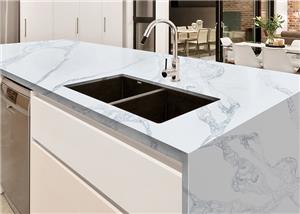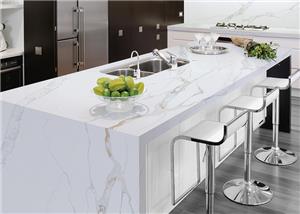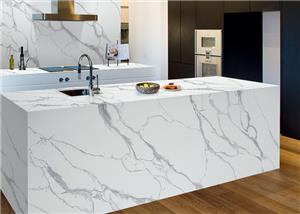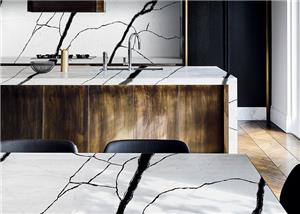Are Quartz Countertops a Natural Stone
Summary
Quartz countertops have become a popular choice in modern kitchens and bathrooms due to their durability, aesthetic appeal, and ease of maintenance. However, a common question among homeowners and designers is whether quartz countertops are considered natural stone. This article will clarify the nature of quartz countertops, explore their composition, compare them to natural stones, discuss installation considerations, and highlight key suppliers in the market. By the end, you'll have a comprehensive understanding of what quartz countertops are and how they fit into the broader category of countertop materials.
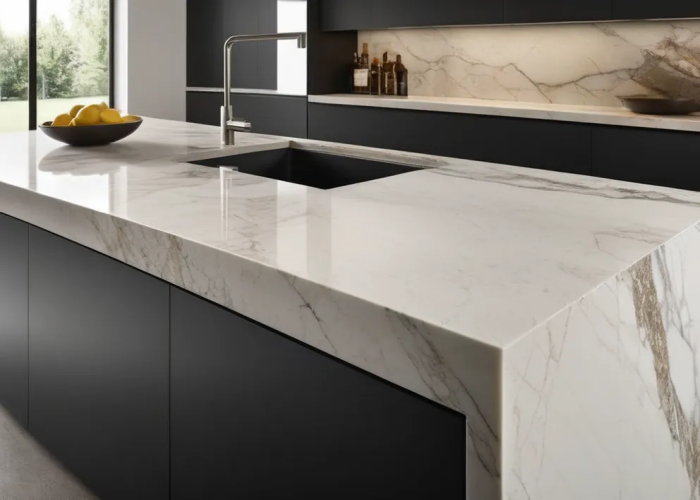
What Are Quartz Countertops?
Quartz countertops are engineered surfaces composed primarily of crushed quartz crystals mixed with resins and pigments. Unlike natural stones such as granite or marble, which are cut directly from quarries, quartz countertops are manufactured in a controlled environment. This process involves combining about 90-95% crushed natural quartz with polymer resins, which are then molded into large slabs and cured.
This engineered nature allows quartz countertops to offer a consistent appearance and high durability. They are non-porous, which makes them resistant to stains and bacteria. While quartz countertops mimic the look of natural stone, they are not classified as natural stone due to their synthetic manufacturing process.
Comparing Quartz Countertops to Natural Stones
When evaluating countertop materials, it's essential to understand the differences between quartz countertops and natural stones. Natural stones like granite, marble, and slate are formed through geological processes over millions of years. Each slab of natural stone is unique in its color and pattern due to the natural variations found in the stone.
Quartz countertops, on the other hand, are engineered and can be produced in a wide range of colors and patterns that may not occur naturally. This flexibility in design is one of the key advantages of quartz. While natural stones can offer unique aesthetics, quartz provides a more uniform look and can be tailored to specific design preferences.
Factors Influencing Quartz Countertop Installation
The installation of quartz countertops involves several important factors to ensure a successful outcome. First, accurate measurements of the installation area are crucial to ensure that the slabs fit perfectly. Quartz countertop suppliers often provide templates or support to help with precise measurements.
Another consideration is the weight of quartz countertops. They are heavier than some other materials, so proper support and cabinetry reinforcement may be necessary. Additionally, professional installation is recommended to handle the material's weight and ensure that seams are properly aligned and sealed.
Choosing the Right Quartz Countertop Suppliers
Selecting a reliable quartz countertop supplier is essential for obtaining high-quality materials and excellent service. Leading suppliers offer a range of colors, patterns, and finishes to suit various design needs. They should also provide clear information on warranties, maintenance, and installation services.
When choosing a supplier, consider their reputation, customer reviews, and the breadth of their product offerings. Reputable quartz countertop suppliers will not only offer a diverse selection but also provide comprehensive support throughout the buying and installation process.
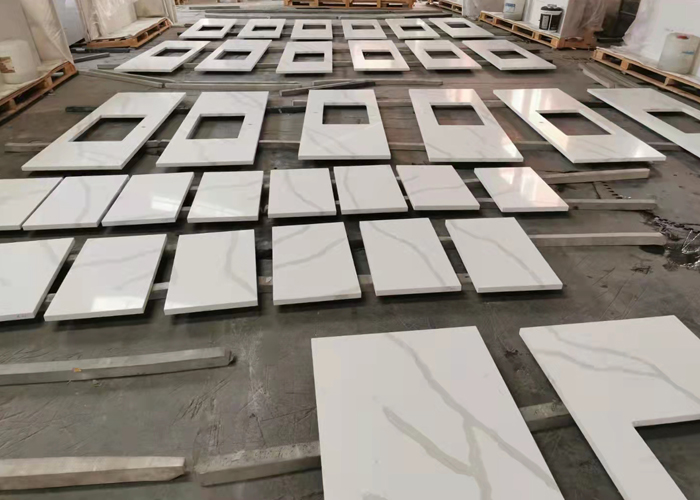
Benefits of Quartz Countertops
Quartz countertops offer numerous benefits, making them a popular choice among homeowners and designers. Their non-porous surface ensures resistance to stains, bacteria, and mold, which enhances both hygiene and durability. Additionally, quartz countertops require minimal maintenance compared to natural stone options, as they do not need sealing.
The aesthetic versatility of quartz allows it to mimic various natural stone looks or create unique designs that may not be available with natural materials. With a wide range of colors and patterns, quartz countertops can fit into virtually any design scheme, from contemporary to traditional.
Conclusion
Quartz countertops, though not a natural stone, offer significant advantages that make them a popular choice for modern interiors. Their engineered composition provides durability, a wide range of design options, and easy maintenance, setting them apart from natural stone countertops. By understanding what quartz countertops are, how they compare to natural stones, and the factors involved in their installation, you can make an informed decision for your next project. Choose from reputable quartz countertop suppliers to ensure that you get high-quality materials and professional support, making your investment both beautiful and practical.
FAQs
Are quartz countertops considered a natural stone?
No, quartz countertops are not considered natural stone. They are engineered surfaces made from crushed quartz crystals mixed with resins and pigments.
What are the benefits of using quartz countertops over natural stone?
Quartz countertops are non-porous, which makes them resistant to stains, bacteria, and mold. They also require less maintenance and do not need sealing like natural stone countertops.
What should I consider when choosing quartz countertop suppliers?
When selecting a quartz countertop supplier, consider their reputation, product range, customer reviews, and the quality of their customer service. Ensure they offer comprehensive support for installation and maintenance.
How is quartz countertop installation different from natural stone installation?
Quartz countertop installation is similar to natural stone in terms of the need for precise measurements and proper support. However, quartz countertops are heavier, so additional support may be necessary, and professional installation is recommended to handle the material properly.
Can I customize the design of quartz countertops?
Yes, quartz countertops offer a wide range of colors, patterns, and finishes. They can be customized to fit specific design preferences, making them a versatile option for various interior styles.

